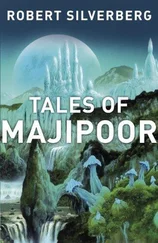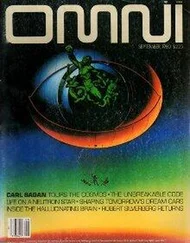Robert Silverberg - Getting to Know the Dragon
Здесь есть возможность читать онлайн «Robert Silverberg - Getting to Know the Dragon» весь текст электронной книги совершенно бесплатно (целиком полную версию без сокращений). В некоторых случаях можно слушать аудио, скачать через торрент в формате fb2 и присутствует краткое содержание. Год выпуска: 2003, ISBN: 2003, Издательство: HarperCollins, Жанр: Альтернативная история, на английском языке. Описание произведения, (предисловие) а так же отзывы посетителей доступны на портале библиотеки ЛибКат.
- Название:Getting to Know the Dragon
- Автор:
- Издательство:HarperCollins
- Жанр:
- Год:2003
- ISBN:978-0-380-97859-5
- Рейтинг книги:5 / 5. Голосов: 1
-
Избранное:Добавить в избранное
- Отзывы:
-
Ваша оценка:
- 100
- 1
- 2
- 3
- 4
- 5
Getting to Know the Dragon: краткое содержание, описание и аннотация
Предлагаем к чтению аннотацию, описание, краткое содержание или предисловие (зависит от того, что написал сам автор книги «Getting to Know the Dragon»). Если вы не нашли необходимую информацию о книге — напишите в комментариях, мы постараемся отыскать её.
Getting to Know the Dragon — читать онлайн бесплатно полную книгу (весь текст) целиком
Ниже представлен текст книги, разбитый по страницам. Система сохранения места последней прочитанной страницы, позволяет с удобством читать онлайн бесплатно книгу «Getting to Know the Dragon», без необходимости каждый раз заново искать на чём Вы остановились. Поставьте закладку, и сможете в любой момент перейти на страницу, на которой закончили чтение.
Интервал:
Закладка:
That no one has tackled the job of writing his life in the two centuries since his death should come as no surprise. One can write safely about a dead Caesar, yes, but where was the man to do the job? The glittering period of the Renaissance gave way all too quickly to the dawning age of industrial development, and in that dreary, smoky time the making of money took priority over everything else, art and scholarship included. And now we have our new era of decadence, in which one weakling after another has worn the Imperial crown and the Empire itself seems gradually to be collapsing into a congeries of separate entities that feel little or no sense of loyalty to the central authority. Such vigor as our masters can manage to muster goes into inane enterprises like the construction of gigantic pointy-headed tombs in the Pharaonic style here in this isle of Sicilia. Who, in such an age, can bear to confront the grandeur of a Trajan VII?
Well, I can.
And have a thick sheaf of manuscript to show for it. I have taken advantage of my position in the Imperial service to burrow in the subbasements of the Capitol in Roma, unlocking cabinets that have been sealed for twenty centuries and bringing official papers into the light of day whose very existence had been forgotten. I have looked into the private records of the deliberations of the Senate: no one seemed to mind, or to care at all. I have read memoirs left behind by high officials of the court. I have pored over the reports of provincial excise collectors and tax commissioners and inspectors of the public markets, which, abstract and dull though they may seem, are in fact the true ore out of which history is mined. From all of this I have brought Trajan the Dragon and his era back into vivid reality—at least in my own mind, and on the pages of my unfinished book.
And what a figure he was! Throughout the many years of his long life he was the absolute embodiment of strength, vision, implacable purpose and energy. He ranks with the greatest of Emperors. With Augustus Caesar who founded the Empire, with Trajan I and Hadrianus who carried its boundaries to the ends of the earth, with Constantinus who established efficient rule over that far-flung domain, with Maximilianus III who conquered the barbarians once and for all, with his own countryman and predecessor Flavius Romulus. I have spent these years getting to know him—getting to know the Dragon!—and the contact with his great soul that I have enjoyed during these years of research into his life has ennobled and enlightened my days.
Well, then, what do I know of him, this great Emperor, this Dragon of Roma, this distant ancestor of mine?
That he was born illegitimately, for one thing. I have combed very carefully through the records of marriages and births in Tarraco and surrounding regions of Hispania for the entire period from A.U.C. 2215 to 2227, which should have been more than sufficient, and although I have found a number of Dracos entered in the tax rolls for those years, Decimus Draco and Numerius Draco and Salvius Draco, not one of them seems to have been married in any official way or to have brought forth progeny that warranted enumeration in the register of births. So his parents’ names must remain unknown. All I can report is that one Trajan Draco, a native of Tarraco, is listed as enrolling in military service in the Third Hispanic Legion in the year 2241, from which I conclude that he was born somewhere between A.U.C. 2220 and 2225. In that period it was most usual to enter the army at the age of eighteen, which would place his date of birth at 2223, but, knowing Trajan Draco as I do, I would hazard a guess that he went in even younger, perhaps when he was sixteen or only fifteen.
The Empire was still under Greek rule at that time, technically; but Hispania, like most of the western provinces, was virtually independent. The Emperor at Constantinopolis was Leo XI, a man who cared much more about filling his palace with the artistic treasures of ancient Greece than he did about what might be going on in the Europan territories. Those territories were nominally under the control of the Western Emperor, anyway, his distant cousin Nicephoros Cantacuzenos. But the Western Emperors during the era of Greek domination were invariably idle puppets, and Nicephoros, the last of that series, was even more idle than most. They say he was never even to be seen in Roma but spent all his days in comfortable retreat in the south, near Neapolis.
The rebellion of the West, I am proud to say, began in Hispania, in my very own native city of Tarraco. The bold and dynamic Flavius Romulus, a shepherd’s son who may have been illiterate, raised an army of men just as ragged as he, overthrew the provincial government, and proclaimed himself Emperor. That was in the year 2193; he was twenty-five or thirty years old.
Nicephoros, the Western Emperor, chose to regard the Hispanic uprising as an insignificant local uproar, and it is doubtful that news of it reached the Basileus Leo XI in Constantinopolis at all. But very shortly the nearby province of Lusitania had sworn allegiance to the rebel banner, and the isle of Britannia, and Gallia next; and piece by piece the western lands fell away from their fealty to the feckless government in Roma, until finally Flavius Romulus marched into the capital, occupied the Imperial palace, and sent troops south to arrest Nicephoros and carry him into exile in Aegyptus. By the year 2198 the Eastern Empire had fallen also. Leo XI made his famous somber pilgrimage from Constantinopolis to Ravenna to sign a treaty recognizing Flavius Romulus not only as Emperor of the West but as monarch of the eastern territories, too.
Flavius ruled another thirty years. Not content with having reunited the Empire, he distinguished himself by a second astonishing exploit, a voyage around the tip of Africa that took him to the shores of India and possibly even to the unknown lands beyond. He was the first of the Maritime Emperors, setting a noble example for that even more extraordinary traveler, Trajan VII, two generations later.
We Romans had made journeys overland to the Far East, Persia and even India, as far back as the time of the first Augustus. And in the era of the Eastern Empire the Byzantines had often sailed down Africa’s western coast to carry on trade with the black kingdoms of that continent, which had led a few of the more venturesome Emperors of the West to send their own expeditions all the way around Africa and onward to Arabia, and from there now and then to India. But these had been sporadic adventures. Flavius Romulus wanted permanent trade relations with the Asian lands. On his great voyage he carried thousands of Romans with him to India by the African route and left them there to found mercantile colonies; and thereafter we were in constant commercial contact with the dark-skinned folk of those far-off lands. Not only that, he or one of his captains—it is not clear—sailed onward from India to the even more distant realms of Khitai and Cipangu, where the yellow-skinned people live. And thus began the commercial connections that would bring us the silks and incense, the gems and spices, the jade and ivory of those mysterious lands, their rhubarb and their emeralds, rubies and pepper, sapphires, cinnamon, dyes, perfumes.
There were no bounds to Flavius Romulus’s ambitions. He dreamed also of new westward voyages to the two continents of Nova Roma on the other side of the Ocean Sea. Hundreds of years before his time, the reckless Emperor Saturninus had undertaken a foolhardy attempt to conquer Mexico and Peru, the two great empires of the New World, spending an enormous sum and meeting with overwhelming defeat. The collapse of that enterprise so weakened us, militarily and economically, that it was an easy matter for the Greeks to take control of the Empire within fifty years. Flavius knew from that sorry precedent that we could never achieve the conquest of those fierce nations of the New World, but he hoped at least to open commercial contact with them, and from the earliest years of his reign he made efforts to that end.
Читать дальшеИнтервал:
Закладка:
Похожие книги на «Getting to Know the Dragon»
Представляем Вашему вниманию похожие книги на «Getting to Know the Dragon» списком для выбора. Мы отобрали схожую по названию и смыслу литературу в надежде предоставить читателям больше вариантов отыскать новые, интересные, ещё непрочитанные произведения.
Обсуждение, отзывы о книге «Getting to Know the Dragon» и просто собственные мнения читателей. Оставьте ваши комментарии, напишите, что Вы думаете о произведении, его смысле или главных героях. Укажите что конкретно понравилось, а что нет, и почему Вы так считаете.












